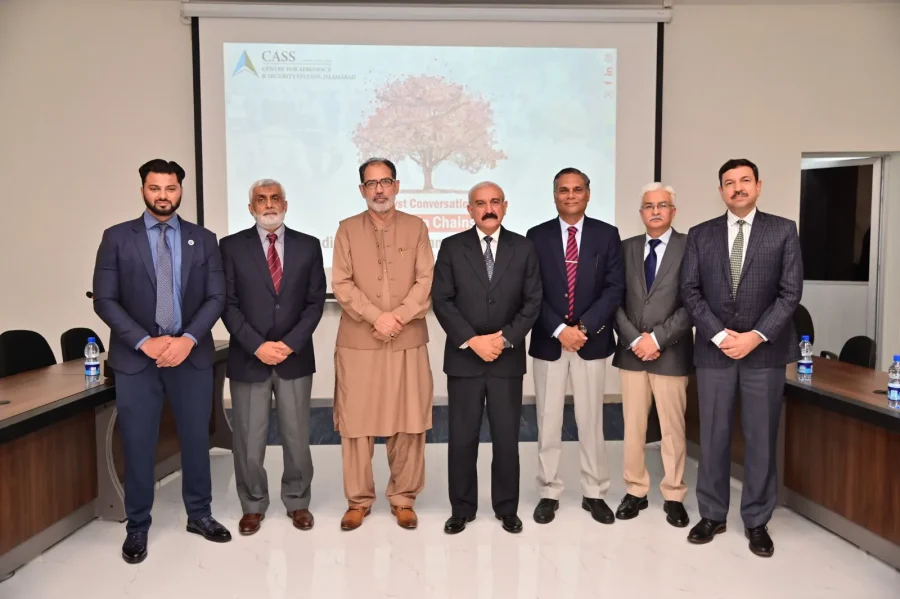The Centre for Aerospace & Security Studies (CASS), Islamabad, conducted a special session under its Catalyst Conversation Series on ‘Chinars in Chains: India’s Siege of Jammu and Kashmir’ with MrAltafHussainWani, Chairman, Kashmir Institute of International Relations, to discuss the current situation in Indian Illegally Occupied Jammu and Kashmir (IIOJK).
Air Marshal FarooqHabib (Retd), Senior Director at CASS, set the stage for the discussion and highlighted that the full integration of IIOJK into the Indian Union has been a central element of the BJP and RSS’s Hindutva agenda. He noted that abrogation of Articles 370 and 35A on 5th August 2019 by the Modi government were followed by severe security measures including curfews and communication blackouts in the disputed territory. Air Marshal Habib also observed that the Indian Supreme Court supported the government’s actions, which included the enactment of laws aimed at changing the region’s demographics by allowing an influx of non-Kashmiris. He shared that five years on, the Muslim majority in IIOJK continues to face marginalisation and repression, with the international community largely remaining silent on these issues.
In his Keynote Address, the Distinguished Speaker MrAltafHussainWani, Chairman, Kashmir Institute of International Relations, discussed the considerable socio-political and economic upheavals in Jammu & Kashmir since the revocation of Article 370 and 35A, marking five years of continued distress and despair. MrWani highlighted that Jammu & Kashmir remains under direct control from New Delhi, lacking an elected government, which he described as a severe democratic deficit. He noted that the region operates akin to a ‘police state’, with heightened levels of incarceration and constant surveillance.
About 19,000 people, including political and human rights activists, were detained, impacting over 8 million Kashmiris who faced shortages of essentials and medical supplies due to the lockdown. He further pointed out the economic turmoil within the region, stating that businesses have suffered immense losses while poverty, hunger, and unemployment have risen, starkly contradicting claims made by the Modi government. MrWani observed that in the recent LokSabha elections, the electorate in IIOJK expressed their dissatisfaction through their votes. Despite the BJP’s carrot and stick policy, it failed to secure a candidate for the three constituencies in the occupied Kashmir Valley, and their proxy candidates were also defeated, indicating that the Kashmiris’ support lies with those who champion their rights.
MrWani was of the view that significant settler-colonial policies are in place, including land acquisitions by non-local industrialists which disrupt the local Muslim demography. He underscored the issuance of over 500,000 new domicile certificates to non-Kashmiris as an intentional act to alter the demographic makeup of the region.
Regarding human rights, MrWani detailed numerous violations under the enforced draconian laws such as the Public Safety Act and the Armed Forces Special Powers Act.
These laws, he said, have facilitated a surge in extrajudicial killings, arbitrary detentions, and a general misuse of anti-terrorism legislation.










